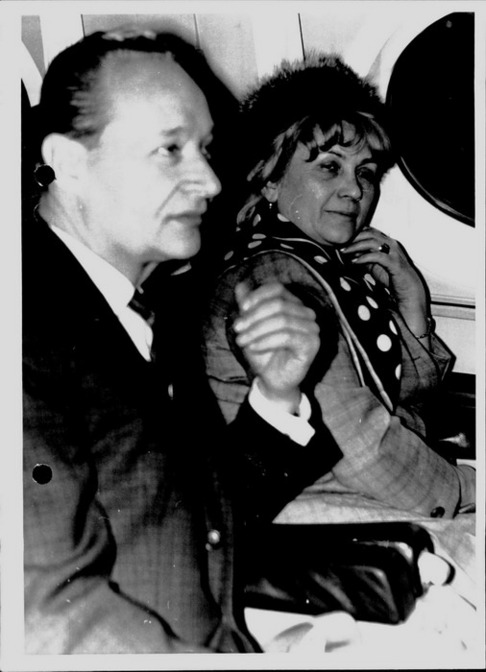 Besides various secret analyses and testimonies, the web page also offers previously unpublished radio transmissions and a list of 108 victims - people who died between August 21 until the end of 1968 and their death was related to the presence of the Warsaw Pact troops in Czechoslovakia.
Besides various secret analyses and testimonies, the web page also offers previously unpublished radio transmissions and a list of 108 victims - people who died between August 21 until the end of 1968 and their death was related to the presence of the Warsaw Pact troops in Czechoslovakia.This list includes basic biographic data, often accompanied with a photo of the victim. Some of them were shot, others were run over by Soviet tanks.
Twenty-two year old Eduard Netušil died in a road accident. The young man was trying to take over a badly lit military transporter that suddenly reversed, forcing the young man to drive his motorbike into a tree.
Or, sixty-three years old Josef Bulík who died when a tank crushed a newspaper stand he happened to be in.
The original records of the radio broadcast programs of August 1968 have been long lost in archives - now they are all disclosed online.
They include radio news or speeches of major political figures.
"These are ten freest days in the history of Czechoslovak radio," said Totalitarian Regime Study Institute head Pavel Žáček.
Prague Spring
The territory of what was Communist Czechoslovakia then was invaded by five Warsaw Pact member states - Soviet Union, Bulgaria, Hungary, German Democratic Republic and Poland - during the night between 20 and 21 August 1968.
The military intervention took place because the Soviet Bloc's leaders were not happy with the liberal reforms initiated by the new Czechoslovak government.
 Alexandr Dubček was elected the head of the Czechoslovak Communist Party (KSČ) in January 1968 and has become an iconic figure of the 1968 reform program.
Alexandr Dubček was elected the head of the Czechoslovak Communist Party (KSČ) in January 1968 and has become an iconic figure of the 1968 reform program.
For a short period of time Czechoslovakia broke free from Soviet rule. The new government introduced economic reforms, limiting state controls and allowing freedom of speech. This brief period of about four months is now known as the Prague Spring.



